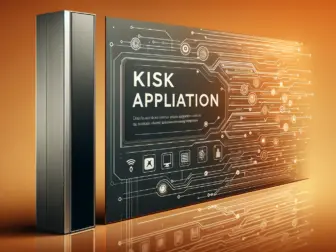Tag - Healthcare Kiosk Development
AI and Machine Learning, Blog , August 30, 2024 , AI in Kiosk Development, Government Kiosk Systems, Healthcare Kiosk Development, Interactive Kiosk Software, Kiosk Development, Kiosk Management Software, Kiosk Software Development, Kiosk System Integration, Personalized Kiosk Experience, Predictive Maintenance, Retail Kiosk Solutions, Self-Service Kiosk Solutions, Touchscreen Kiosk Design, Voice Interaction Kiosk
Revolutionizing Healthcare: The Future of Healthcare Kiosk Development
In recent years, healthcare kiosks have emerged as a game-changing technology in the healthcare industry, offering convenient and efficient solutions for patients and providers alike. These interactive self-service stations are revolutionizing the way patients access healthcare services, from scheduling appointments to checking in for appointments, updating personal information, making payments, and even completing pre-visit screenings.
Healthcare kiosks are designed to streamline processes, reduce wait times, and improve overall patient experience. They are particularly beneficial in busy healthcare settings such as hospitals, clinics, and urgent care centers, where time is of the essence and efficiency is paramount. By automating routine tasks and administrative processes, healthcare kiosks free up valuable staff time, allowing healthcare providers to focus more on patient care.
One of the key advantages of healthcare kiosks is their ability to enhance patient engagement and empowerment. Patients can use kiosks to access educational materials, health resources, and personalized health information, empowering them to take a more active role in managing their own health. This not only leads to better health outcomes but also promotes a sense of responsibility and ownership over one’s health.
Furthermore, healthcare kiosks can help improve communication between patients and providers. Patients can use kiosks to communicate their symptoms, medical history, and concerns to their healthcare providers, ensuring that all relevant information is accurately conveyed and documented. This can lead to more effective diagnoses, treatment plans, and follow-up care, ultimately improving patient outcomes.
As healthcare kiosk technology continues to evolve, we can expect to see even more advanced features and capabilities in the future. For example, some healthcare kiosks are now equipped with biometric sensors and AI-powered algorithms to monitor vital signs, assess symptoms, and provide personalized health recommendations. This not only enhances the patient experience but also enables healthcare providers to deliver more personalized and proactive care.
Moreover, healthcare kiosks are increasingly being integrated with electronic health records (EHRs) and telehealth platforms, allowing for seamless data sharing and communication between different healthcare systems and providers. This interoperability is crucial for ensuring continuity of care and improving care coordination, particularly for patients with complex medical conditions or multiple healthcare providers.
Overall, healthcare kiosks have the potential to transform the healthcare industry by improving access to care, enhancing patient engagement, and optimizing healthcare delivery. As we continue to navigate the challenges of the modern healthcare landscape, healthcare kiosk development will play an increasingly important role in shaping the future of healthcare and driving innovation in patient-centered care.
